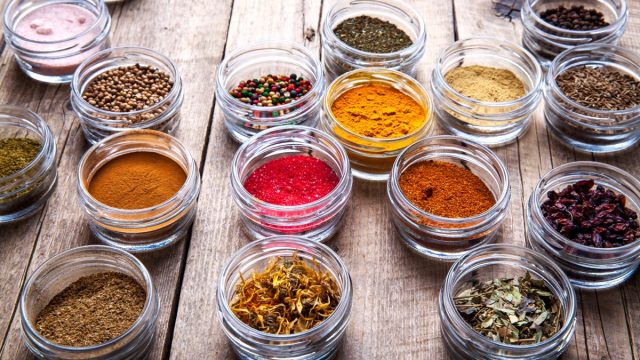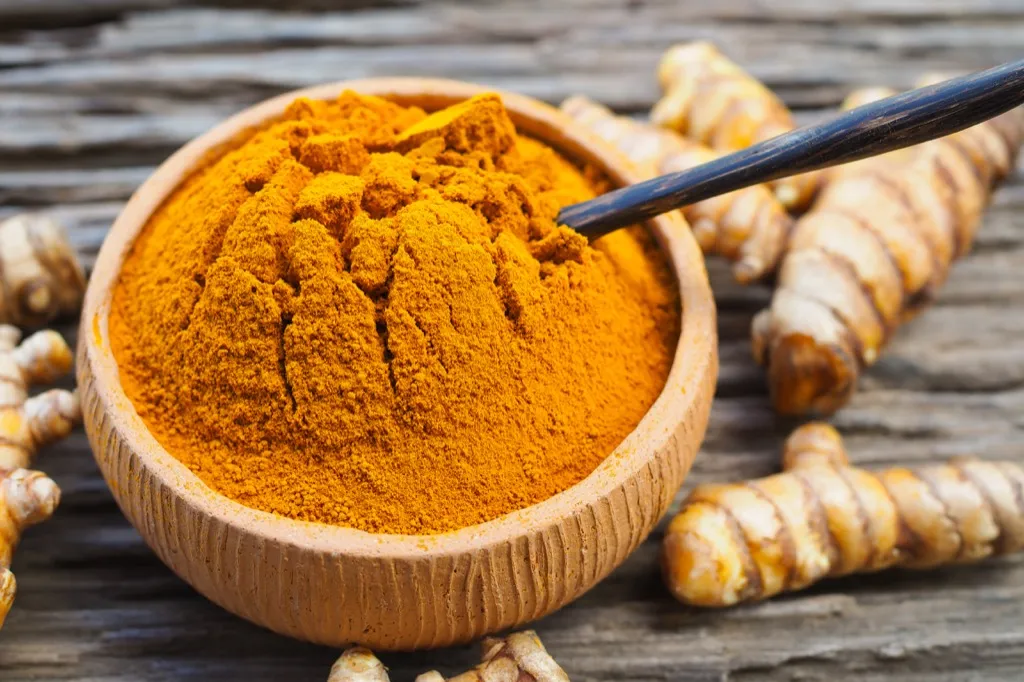This Common Spice Can Actually Improve Your Memory, Study Says

As you age, your odds of developing memory loss or cognitive impairment increase. In fact, up to 20 percent of adults older than 65 have mild cognitive impairment, “the stage between the expected cognitive decline of normal aging and the more serious decline of dementia,” as defined by the Mayo Clinic. However, there are ways to improve your memory while you’re still in good cognitive health—and some of them can be found right in your very own kitchen. Read on to learn which spice can actually boost your brainpower, and why one way of ingesting it may be more effective than others.
READ THIS NEXT: Having This Blood Type Makes You 82 Percent More Likely to Suffer Memory Loss, Experts Say.
Several different spices can improve your memory, experts say.

If you’re hoping to sharpen your memory, experts say you may already have some helpful tools in your pantry. “Your kitchen cabinet contains a number of seasonings that have been linked to positive effects on brain health and functioning,” says Uma Naidoo, MD, a nutritional psychiatrist and director of nutritional and lifestyle psychiatry at Massachusetts General Hospital. “Spices and herbs have a long history as a safe component of human diets and traditional health practices. Their effects on the brain can be significant, and we need more research to determine the potential of using compounds found in common seasonings as medications,” she wrote for Harvard Health Publishing.
READ THIS NEXT: Doing This at Night Can Boost Your Memory, New Study Says.
A 2018 study found promising results with one spice in particular.

According to a 2018 study published in The American Journal of Geriatric Psychiatry, curcumin, the main active ingredient in turmeric, can improve your memory and preserve cognitive function. “Because curcumin’s anti-inflammatory properties may protect the brain from neurodegeneration, we studied its effect on memory in non-demented adults and explored its impact on brain amyloid and tau accumulation,” researchers explained.
The team enrolled 40 subjects, aged 51 to 48, for the 18-month study, and instructed the group to take either a twice-daily 90 mg dose of curcumin, or a placebo. Building on previous research which suggested cognitive benefits associated with turmeric, they found that curcumin may lead to improved memory and attention in cognitively healthy adults.
“Epidemiological studies indicate a lower prevalence of Alzheimer disease in Indian people who consume curcumin in curry and a link between dietary curry consumption and better cognitive performance in older adults, supporting the hypothesis that curcumin consumption may provide neuroprotective benefits,” the team wrote.
Here’s why curcumin may help cognition.

Scientists performed pre- and post-treatment brain scans, known as FDDNP-PET scans, to identify biomarkers of cognitive improvement. They said their findings “suggested that behavioral and cognitive benefits are associated with decreases in plaque and tangle accumulation in brain regions modulating mood and memory.”
Amyloid and tau deposits are sticky plaques of protein on the brain which are associated with—and may even cause—Alzheimer’s disease. However, researchers also noted that curcumin’s anti-inflammatory and antioxidant properties may be behind its benefits.
For more health news sent directly to your inbox, sign up for our daily newsletter.
Researchers believe using a “bioavailable” supplement is most effective.

The researchers noted that previous research on the benefits of curcumin when consumed directly through turmeric has returned mixed results. However, their study focused on Theracurmin, a bioavailable form of curcumin designed to increase intestinal endothelium penetrability. They concluded that using this highly absorptive form of curcumin improved their study’s outcome.
Speak with your doctor if you have questions about whether you might benefit from adding curcumin to your diet, or curcumin supplements to your health routine.